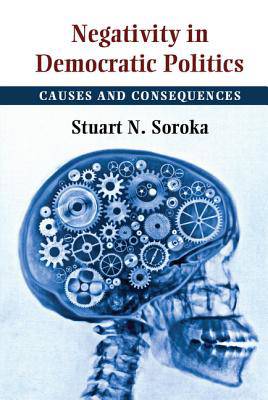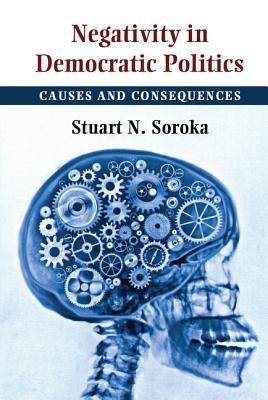
- Afhalen na 1 uur in een winkel met voorraad
- Gratis thuislevering in België vanaf € 30
- Ruim aanbod met 7 miljoen producten
- Afhalen na 1 uur in een winkel met voorraad
- Gratis thuislevering in België vanaf € 30
- Ruim aanbod met 7 miljoen producten
Zoeken
Omschrijving
This book explores the political implications of the human tendency to prioritize negative information over positive information. Drawing on literatures in political science, psychology, economics, communications, biology, and physiology, this book argues that "negativity biases" should be evident across a wide range of political behaviors. These biases are then demonstrated through a diverse and cross-disciplinary set of analyses, for instance: in citizens' ratings of presidents and prime ministers; in aggregate-level reactions to economic news, across 17 countries; in the relationship between covers and newsmagazine sales; and in individuals' physiological reactions to network news content. The pervasiveness of negativity biases extends, this book suggests, to the functioning of political institutions - institutions that have been designed to prioritize negative information in the same way as the human brain.
Specificaties
Betrokkenen
- Auteur(s):
- Uitgeverij:
Inhoud
- Aantal bladzijden:
- 184
- Taal:
- Engels
- Reeks:
Eigenschappen
- Productcode (EAN):
- 9781107063297
- Verschijningsdatum:
- 14/04/2014
- Uitvoering:
- Hardcover
- Formaat:
- Genaaid
- Afmetingen:
- 152 mm x 231 mm
- Gewicht:
- 453 g

Alleen bij Standaard Boekhandel
+ 227 punten op je klantenkaart van Standaard Boekhandel
Beoordelingen
We publiceren alleen reviews die voldoen aan de voorwaarden voor reviews. Bekijk onze voorwaarden voor reviews.











